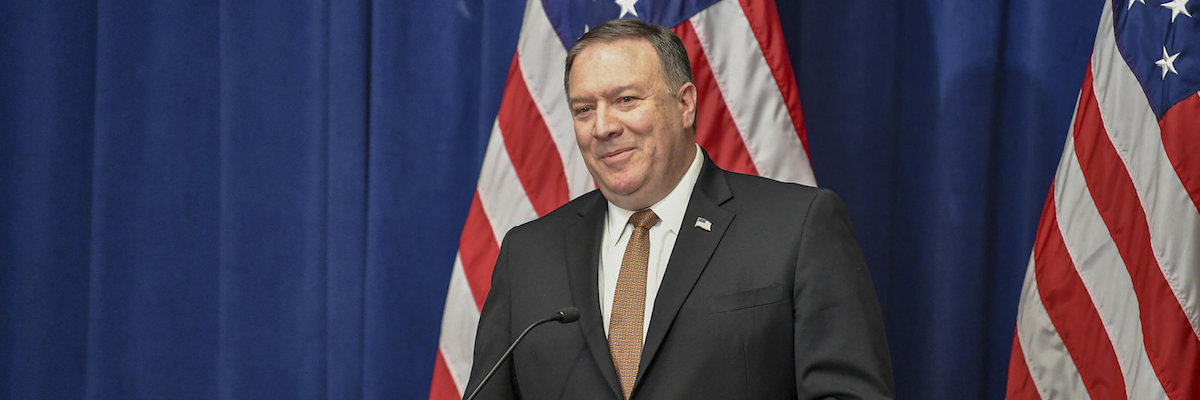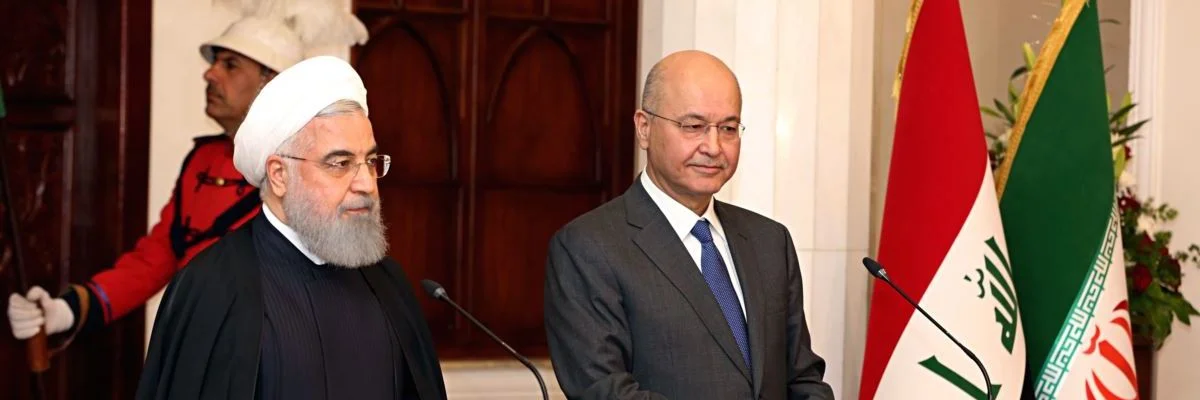Pompeo on Middle East Tour to Counter Iran, Boost Netanyahu
Top US diplomat Mike Pompeo sought Wednesday to bolster a united front against Iran during a Middle East tour that will include talks with key ally Prime Minister Benjamin Netanyahu ahead of Israeli elections.
The US secretary of state kicked off his regional tour in Kuwait where he met Emir Sheikh Sabah al-Ahmad Al-Sabah on the first stop of a trip that will also take him to Israel and Lebanon.
Pompeo told reporters on the flight from the United States that he would discuss "strategic dialogue" and the need to combat "the threat posed by the Islamic Republic of Iran" with leaders in the region.
He will also push for a greater role for the Middle East Strategic Alliance, a US-sponsored Arab NATO aimed at uniting Washington's Arab allies against Tehran.
After Kuwait Pompeo will fly to Israel where an election campaign is in its final weeks with Netanyahu locked in a close battle with centrist rivals.
While Washington insists it is not interfering in Israeli politics, his visit is seen as a sign of support for Netanyahu, who is struggling to keep his grip on power as he faces allegations of bribery, fraud and breach of trust ahead of the April 9 polls.
"I'm going to Israel because of the important relationship we have," Pompeo said.
"Leaders will change in both countries over time. That relationship matters no matter who the leaders are."
Israel is one of the most outspoken members of the anti-Iranian grouping assembled by the US, and Iran is sure to be a central focus of Pompeo's talks in Jerusalem.
'Important Relationship'
No meetings with Netanyahu's opponents are scheduled, and the secretary of state will not meet with representatives of the Palestinian Authority.
"They'd have to want to talk to us," Pompeo said of the Palestinian officials. "That'd be a good start."
President Donald Trump's decision in December 2017 to recognize Jerusalem as the capital of Israeli delighted Netanyahu's government.
But it enraged Palestinians, who want to make the eastern, mainly Palestinian part of the city the capital of their future state.
Washington has taken a series of steps deemed so "hostile" by the Palestinian Authority that it now refuses any contact with the US administration. The moves include cutting most of the US aid to the Palestinians.
Pompeo's two-day visit to Jerusalem also includes a symbolic stop at the new US embassy, which was transferred from Tel Aviv on Trump's orders last year.
Netanyahu will travel to Washington in the last week of March for the annual conference of the American Israel Public Affairs Committee (AIPAC), an event sponsored by the influential lobbying group that draws thousands each year.
While a meeting has not been officially confirmed, the Israeli premier hopes to use the opportunity of his Washington visit to meet with Trump.
Peace Plan Countdown
A shift in semantics and policy has marked the Trump term, particularly related to the Middle East.
The US has ceased to refer to Syria's Golan Heights as "Israeli-occupied" and instead calls the territory "controlled" by Israel—a change seen by some as a prelude to US recognition of Israeli sovereignty over the strategic plateau.
“That language reflects the facts as we understand them," Pompeo said. “This was a factual statement about how we observe the situation. And we think it's very accurate, and we stand behind it."
The April 9 vote in Israel will also start the countdown for the presentation, expected before the summer, of the Israeli-Palestinian peace plan that a small White House team—strongly pro-Israeli, analysts say—has been quietly preparing under the president's son-in-law, Jared Kushner.
During Friday's Beirut leg of his trip, Pompeo will focus on the Hezbollah movement, which the US considers a pro-Iranian "terrorist" group even though it is represented in the coalition government of Lebanese Prime Minister Saad Hariri, himself a US ally.
Photo Credit: State Department




